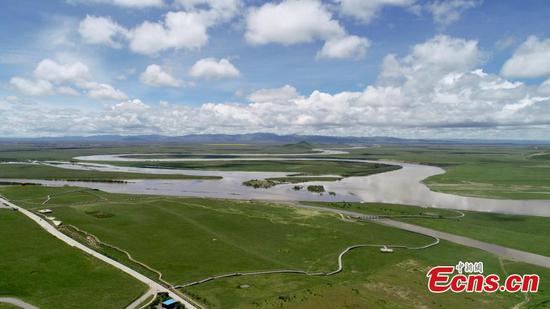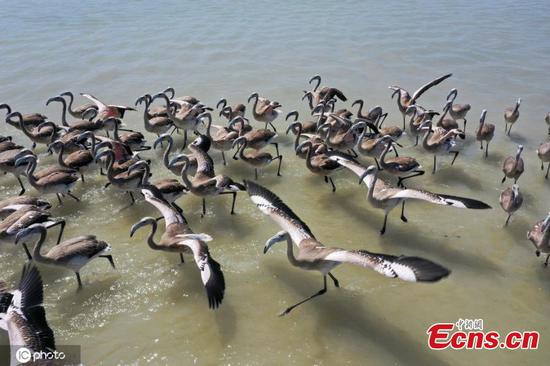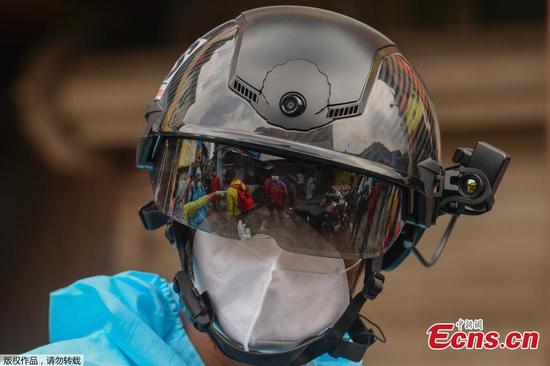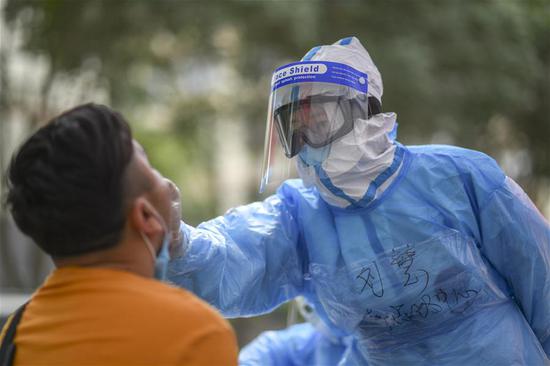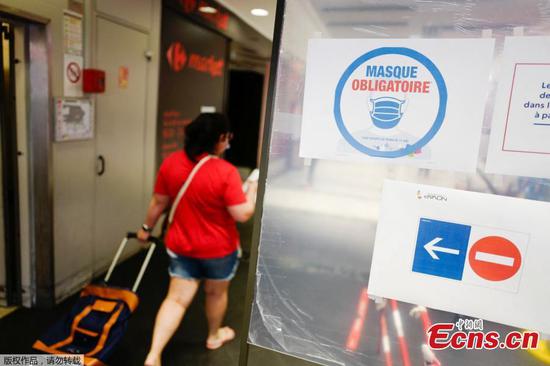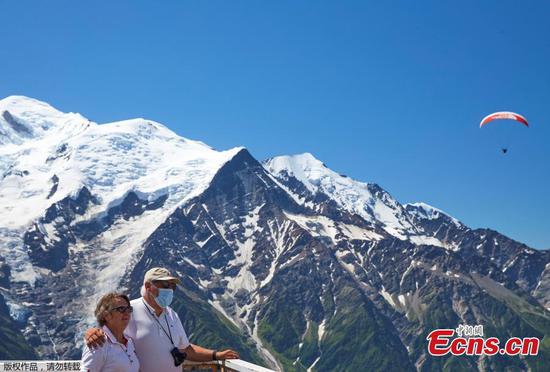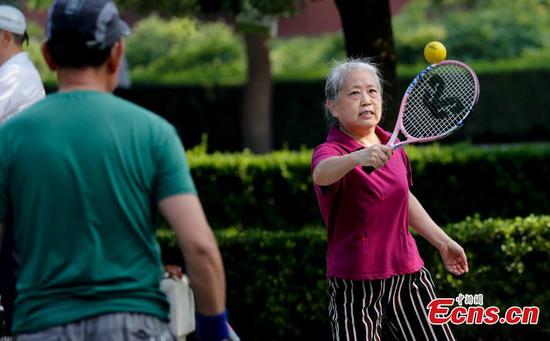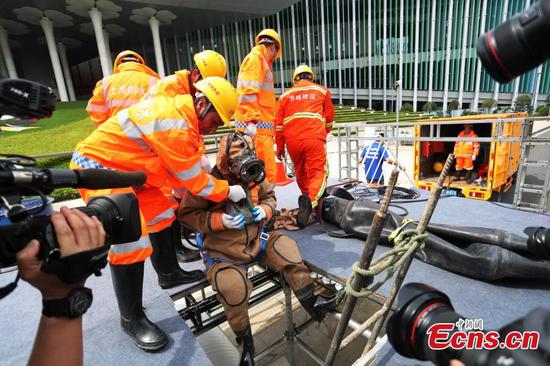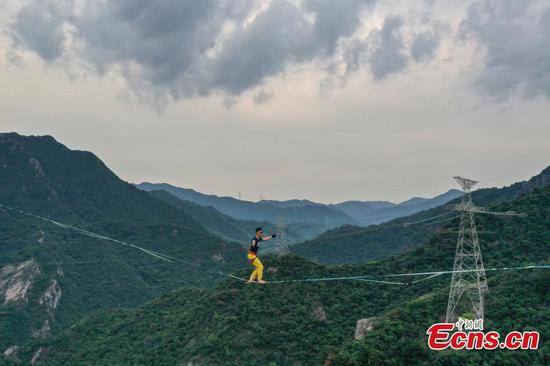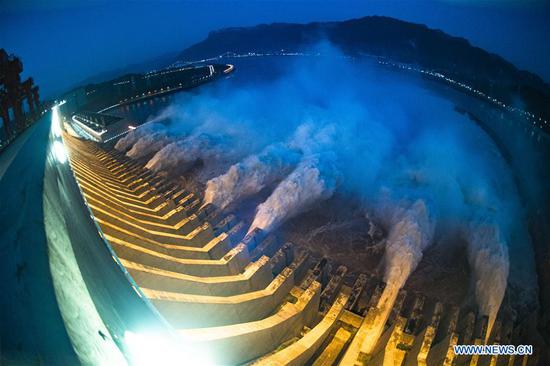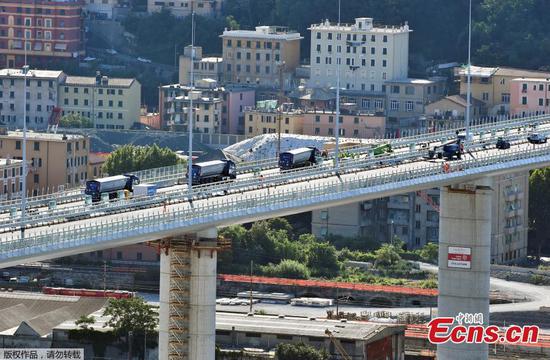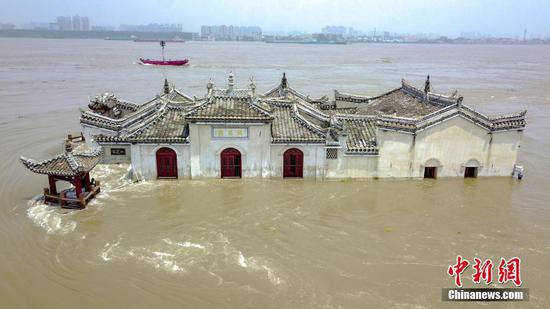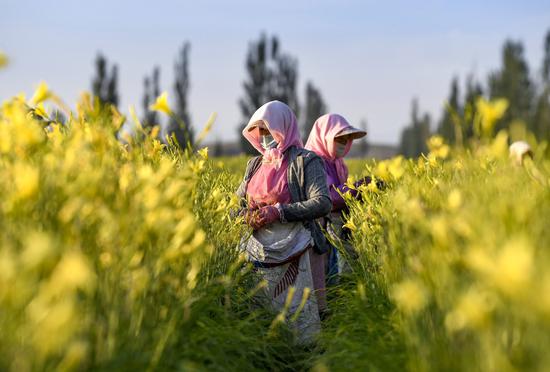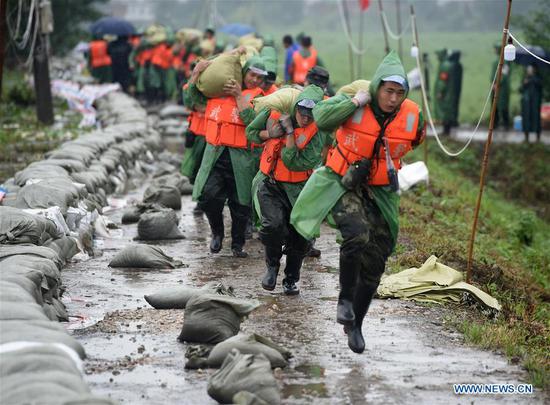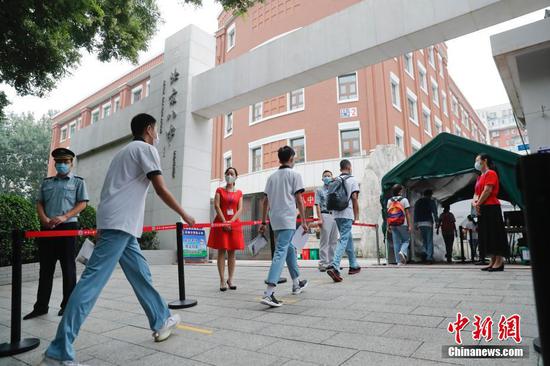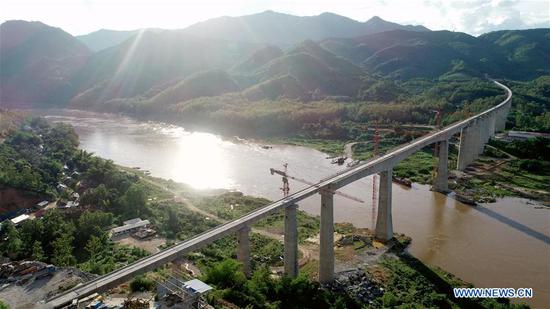
(From left) Zhou Hongsheng, Zhou Songlin and Zhou Jiahe, three generations in one family have fought against floods in Wuhan, Hubei province. CHINA DAILY
It seems Zhou Jiahe is fated to patrol dikes.
This thought occurred to him when he joined the patrol team in early July because he had become the third generation of his family to participate in flood control efforts in Wuhan, Hubei's provincial capital, since his grandfather started doing it in 1954.
On Friday morning, Zhou put on camouflage clothing and a pair of rain boots. With a life vest covering his upper body, he took a bamboo pole in hand and set off to his workplace-a dike along the Yangtze River that runs through Wuhan.
Zhou, 22, volunteered to participate in flood control efforts in the city earlier this month. His mission is to patrol the Wujin dike and ensure that it will not burst and submerge the city as the water level in the Yangtze remains high.
Since the city entered the rainy season this summer, continuous downpours have pushed the Yangtze's water level up, increasing the risk of flooding. The local government said the section of the river in Wuhan is likely to remain above the warning level for several days.
The 15.7-kilometer Wujin dike has been on enhanced guard since earlier this month, with more than 450 hydraulic experts and volunteers participating in the patrol work 24 hours a day.

Zhou Jiahe and his colleagues are on patrol looking for flood risks in Wuhan, Central China's Hubei province on July 11, 2020. [Photo provided to chinadaily.com.cn]
According to Zhou, the dike is a protective facility for Wuchang district, which is located in the southeast section of Wuhan and south of the Yangtze.
"If the dike is ruined, the whole area will be overwhelmed when flooding occurs," he said.
Zhou's task is to walk around the dike in order to find out if some damage to the dike was caused by high water level.
Among other volunteers, Zhou has a longer history since in past decades both his father and grandfather also worked as volunteers during the city's previous flood fights.
His father, Zhou Hongsheng, 51, joined the dike patrol in 1998 when Wuhan was hit hard by flooding from the Yangtze.
Under the scorching temperature of 40 C at the time, Zhou Hongsheng walked on the same dike for more than 12 hours each day, so much so that his feet started to fester just two days after he began. He patrolled the dike for more than a month.
Sharing his experience, he warned his son he must wear waterproof boots and bring a bamboo pole to protect himself from being hurt by snakes in the grass growing near the dike.
The pole has proved to be useful. Zhou Jiahe ran into a snake during a patrol, and he used the pole to dispatch it.
"It was the second time in my life seeing a snake, but I was not afraid," Zhou said.

Zhou Jiahe and his colleagues are on patrol looking for flood risks in Wuhan, Central China's Hubei province on July 11, 2020. [Photo provided to chinadaily.com.cn]
His grandfather, Zhou Songlin, 84, also played a similar role in 1954 when the peak level of the Yangtze reached 29.73 meters, the river's highest recorded water level in Wuhan.
A good swimmer, he worked at his post from June to October, patrolling the dike and also diving into the water to check for leaks.
"I remember I had to swim at least 1,000 meters in the river during a two-hour check," the grandfather said.
Zhou Jiahe said it was only natural that he followed in their footsteps.
"In the past, it was my father and my grandfather that protected our home. Now it's my turn," he said, adding they were very supportive when he signed up for the volunteer work.
Nan Cheng, Party chief at Wuhan Linsheng Investment Group which organized the patrolling work for Wujin dike, said volunteers like Zhou's family are not rare.
"For us growing up near the Yangtze River, patrolling dikes is a common thing," Nan said, explaining that many members of a family, such as couples and brothers and sisters, had wanted to sign up for the work this summer. "Everyone in Wuhan feels it is our duty to guard our home."










